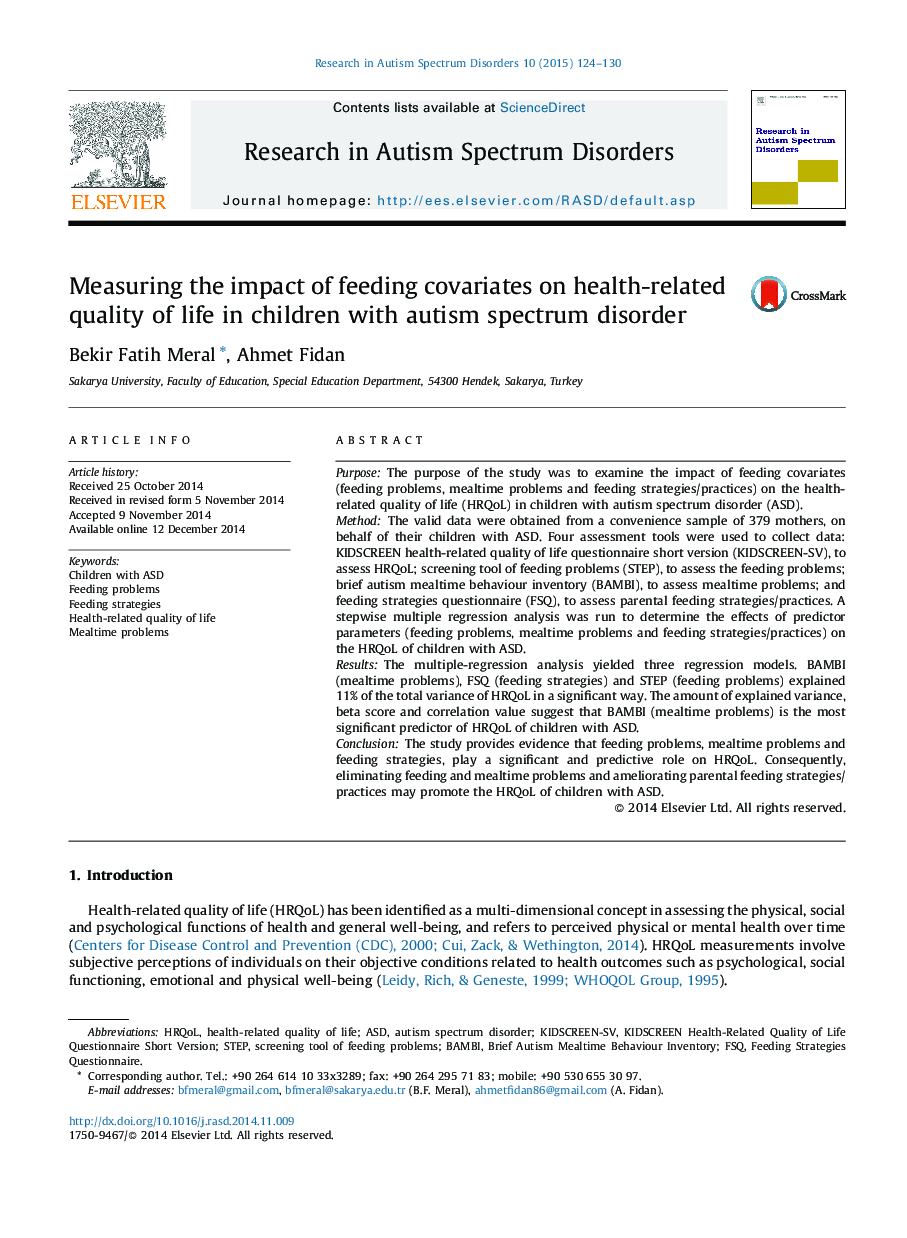| Article ID | Journal | Published Year | Pages | File Type |
|---|---|---|---|---|
| 370035 | Research in Autism Spectrum Disorders | 2015 | 7 Pages |
•This is the first study to determine the effects of feeding covariates on HRQoL in children with ASD according to our knowledge.•Eliminating feeding and mealtime problems and ameliorating parental feeding strategies/practices may promote the HRQoL of children with ASD.•Mealtime problems are the most significant predictor of HRQoL of children with ASD.
PurposeThe purpose of the study was to examine the impact of feeding covariates (feeding problems, mealtime problems and feeding strategies/practices) on the health-related quality of life (HRQoL) in children with autism spectrum disorder (ASD).MethodThe valid data were obtained from a convenience sample of 379 mothers, on behalf of their children with ASD. Four assessment tools were used to collect data: KIDSCREEN health-related quality of life questionnaire short version (KIDSCREEN-SV), to assess HRQoL; screening tool of feeding problems (STEP), to assess the feeding problems; brief autism mealtime behaviour inventory (BAMBI), to assess mealtime problems; and feeding strategies questionnaire (FSQ), to assess parental feeding strategies/practices. A stepwise multiple regression analysis was run to determine the effects of predictor parameters (feeding problems, mealtime problems and feeding strategies/practices) on the HRQoL of children with ASD.ResultsThe multiple-regression analysis yielded three regression models. BAMBI (mealtime problems), FSQ (feeding strategies) and STEP (feeding problems) explained 11% of the total variance of HRQoL in a significant way. The amount of explained variance, beta score and correlation value suggest that BAMBI (mealtime problems) is the most significant predictor of HRQoL of children with ASD.ConclusionThe study provides evidence that feeding problems, mealtime problems and feeding strategies, play a significant and predictive role on HRQoL. Consequently, eliminating feeding and mealtime problems and ameliorating parental feeding strategies/practices may promote the HRQoL of children with ASD.
